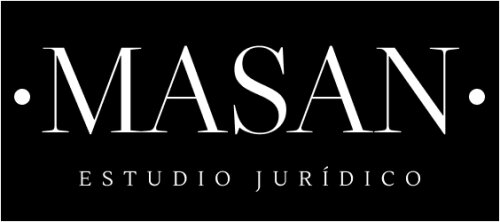Best Child Abuse Lawyers in Vicente Lopez
Share your needs with us, get contacted by law firms.
Free. Takes 2 min.
Free Guide to Hiring a Family Lawyer
List of the best lawyers in Vicente Lopez, Argentina
About Child Abuse Law in Vicente López, Argentina
Child abuse in Vicente López - as in the rest of Argentina - is treated as a serious violation of fundamental rights. The legal framework combines national laws, provincial rules and local procedures to protect children and adolescents from physical abuse, sexual abuse, psychological abuse, neglect and exploitation. Authorities prioritize the best interests of the child and apply protection measures that can be civil, administrative or criminal depending on the situation. Local institutions in Vicente López work with provincial prosecutors, family courts and social services to assess risk, provide immediate protection and start investigations when appropriate.
Why You May Need a Lawyer
There are many situations in which professional legal help can be essential when dealing with child abuse matters in Vicente López. A lawyer can help you understand the legal options, obtain urgent protection measures, prepare and accompany criminal complaints, represent you in family court proceedings, and coordinate with social and medical services. Common scenarios where a lawyer is advisable include:
- When an allegation of abuse requires filing a criminal complaint or following up with the public prosecutor.
- When you need urgent protective orders - for example, restraining orders, interim custody changes or removal of the alleged abuser from the home.
- When there are custody or visitation disputes linked to abuse allegations and you need to protect the child’s rights.
- When evidence needs to be preserved, medical-legal reports obtained, or testimony organized for court.
- When you are a professional with a mandatory-reporting duty and need to navigate administrative and judicial obligations while protecting confidentiality and the child’s best interests.
Local Laws Overview
The most relevant legal instruments you will encounter include national child protection law, the Penal Code and the Civil and Commercial Code, together with provincial and municipal procedures:
- National child protection law establishes the right of children and adolescents to comprehensive protection and places duties on the state, families and institutions to prevent and respond to abuse. This law also creates obligations for mandatory reporting by certain professionals and sets out protection measures for risk situations.
- The Penal Code criminalizes a range of conduct against minors - including physical assault, sexual abuse and sexual exploitation - and provides for criminal investigation and prosecution by the public prosecutor. Criminal procedures can lead to charges, trial and criminal sanctions when the elements of an offense are met.
- Family law and the Civil and Commercial Code govern custody, guardianship, visitation and measures to protect the child’s interests. Family courts in the province can order emergency measures - such as provisional custody changes, supervised visits or removal of a child from a dangerous environment - pending a full judicial resolution.
- At the local and provincial level, social services, municipal child protection units and provincial agencies coordinate protective interventions, psychosocial support and follow-up. In all cases the guiding principle is the best interests of the child, and authorities must take steps to minimize further harm during investigations.
Frequently Asked Questions
What legally counts as child abuse in Vicente López?
Child abuse includes physical harm, sexual abuse and exploitation, psychological or emotional abuse, neglect and abandonment. Acts that expose a child to danger or violate their dignity or bodily integrity may meet the criteria for abuse under national and provincial laws.
How do I report suspected child abuse in Vicente López?
You can report suspected abuse to local police, the public prosecutor's office, municipal child protection services or by calling national helplines for child protection. If a child is in immediate danger call emergency services. Health professionals, teachers and social workers often have mandatory-reporting duties and must notify authorities when they suspect abuse.
What happens after I make a report?
Authorities will assess immediate risk and may take emergency protection measures - for example, remove the child from the environment or issue a restraining order. The public prosecutor may open a criminal investigation if there are indications of a crime. Social services will usually evaluate the child’s situation and arrange medical, psychological and social support as needed.
Can I file a criminal complaint even if the abuser is a family member?
Yes. Criminal complaints can be filed against family members. Prosecutors and courts handle these cases with sensitivity to the family context and the child’s safety. Family relationships do not bar criminal prosecution; however, each case is investigated to determine the required evidence and appropriate protection measures.
What immediate legal protection can be obtained for the child?
Court-ordered protective measures can include restraining orders, removal of the alleged abuser from the household, provisional custody or supervised contact, and orders that require state social services to provide support. These measures can be requested urgently by prosecutors, social services or a lawyer on behalf of the child.
Do I need medical evidence to report abuse?
No - you do not need conclusive medical proof to make a report. However, medical examinations and forensic reports are important for documenting injuries or sexual abuse and for supporting criminal investigations and court proceedings. If abuse is suspected, seek medical attention promptly and preserve any physical evidence.
Will the child have to go to court and testify?
Children may be asked to provide testimony, but courts use protective procedures to reduce trauma - for example, video testimony, interviews by trained professionals, and the presence of a support person. Family and criminal procedures aim to minimize direct courtroom exposure while ensuring the child’s voice is heard in an age-appropriate way.
How long does a child abuse case take to resolve?
Duration varies widely. Emergency protection measures can be implemented quickly, but criminal investigations and family court disputes may take months or longer. Timelines depend on the complexity of evidence, availability of experts, and court caseloads. Lawyers can help track the process and request urgent actions when necessary.
Can I get free legal help?
Yes. Public defenders, legal aid offices and specialized services offer free or low-cost legal assistance for victims and families who cannot afford private counsel. Provincial legal aid services and municipal programs often prioritize cases involving children and domestic violence. A lawyer can help identify available public resources.
What should I do to prepare before seeing a lawyer?
Gather any documents and information related to the case - identification documents, the child’s birth certificate, medical or school records, photographs of injuries, messages or recordings, witness contact details and any police or social services reports already filed. Make notes about dates, times and descriptions of incidents. Share this information confidentially with the lawyer to plan the next legal steps.
Additional Resources
When seeking help in Vicente López, the following types of organizations and bodies can be useful:
- Municipal offices responsible for social development, child and family services - these local units often coordinate immediate protection and social support.
- Provincial public prosecutor’s office - for criminal reporting and investigations related to child abuse in Buenos Aires Province.
- Family courts and juvenile protection courts - for civil protective measures, custody and guardianship issues.
- National helplines - there are dedicated hotlines for reporting child rights violations and gender-based violence which can guide urgent actions.
- Health services and forensic medical units - for injury documentation, sexual assault exams and medical care.
- Non-governmental organizations that work on child protection, victim support and legal aid - they can provide psychosocial support and sometimes legal advice.
- Provincial and national child protection agencies - for broader social protection policies and program referrals.
Next Steps
If you or a child are facing a suspected abuse situation in Vicente López, consider the following practical steps:
- Ensure immediate safety - if there is imminent danger, contact emergency services right away and remove the child from harm if possible.
- Seek medical attention - a medical exam is important for health and, if needed, forensic documentation.
- Report the situation - notify local police, the public prosecutor, social services or the relevant municipal child protection office. Use national helplines when you need guidance or cannot locate local services.
- Preserve evidence - keep records of messages, photos, medical reports and any relevant documents. Write down dates, times and descriptions of incidents while they are fresh in your memory.
- Contact a lawyer experienced in child protection, family law or criminal law - if you need help finding counsel, ask municipal or provincial legal aid offices or specialized NGOs for referrals.
- Request protective measures - work with the prosecutor or a lawyer to seek urgent court orders if the child’s safety is at risk.
- Follow-up with support services - arrange psychological, social and educational support for the child and family during and after legal procedures.
Remember that timely action can be critical to protect a child. Legal procedures can be complex, and professional guidance helps ensure that protective measures are obtained and that the child’s rights are preserved throughout the process. This guide is informational and not a substitute for personalized legal advice from a licensed lawyer in your jurisdiction.
Lawzana helps you find the best lawyers and law firms in Vicente Lopez through a curated and pre-screened list of qualified legal professionals. Our platform offers rankings and detailed profiles of attorneys and law firms, allowing you to compare based on practice areas, including Child Abuse, experience, and client feedback.
Each profile includes a description of the firm's areas of practice, client reviews, team members and partners, year of establishment, spoken languages, office locations, contact information, social media presence, and any published articles or resources. Most firms on our platform speak English and are experienced in both local and international legal matters.
Get a quote from top-rated law firms in Vicente Lopez, Argentina — quickly, securely, and without unnecessary hassle.
Disclaimer:
The information provided on this page is for general informational purposes only and does not constitute legal advice. While we strive to ensure the accuracy and relevance of the content, legal information may change over time, and interpretations of the law can vary. You should always consult with a qualified legal professional for advice specific to your situation.
We disclaim all liability for actions taken or not taken based on the content of this page. If you believe any information is incorrect or outdated, please contact us, and we will review and update it where appropriate.









